|
||||||||
|
|
|
2017-05-20 ArtNo.46014
◆书评:圣灵的施洗(恁么道)
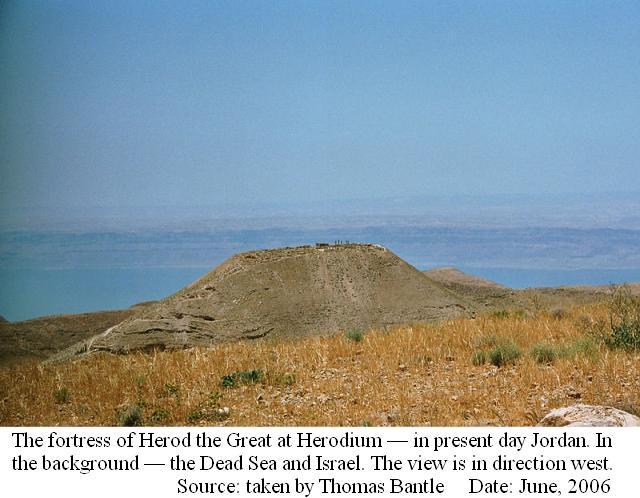 施洗约翰被加利利分封王希律•安提帕逮捕并囚禁在死海附近的要塞马卡鲁斯城堡后,耶稣就选择主要门徒并把他门任命十二使徒,从而开始组织性传教活动。(马太10:1-42) 约翰在监狱里听到这个消息后,马上打发两个门徒去,问他说:“那将要来的是你吗?还是我们等候别人呢?”耶稣回答他们说∶“去把你们的所见所闻告诉约翰说:盲人获得视力,瘸子行走自如,麻风病人得到痊愈,聋子能听见,死人复活,穷苦人得到上帝的福音。那不被我绊倒的,就有福了。”(马太11:2-6) ○福音的重建 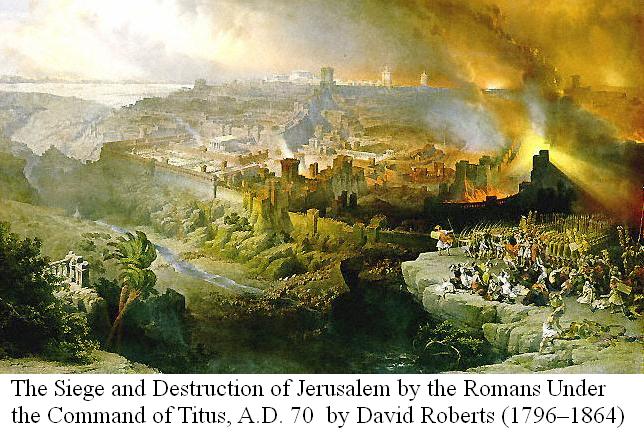 由于在公元66年和70年两次发生的犹太战争,不仅耶路撒冷教会,连神殿和耶路撒冷城市本身也被罗马军毁灭了。在犹太战争之后陆陆续续完成的四本福音书似乎反映了带领早期教会运动的不同派系如何消化这些挫折。 这些派系包括,当第一次犹太战争爆发时,在小雅各的弟弟西蒙的带领下,在罗马军队围攻之前逃出城外,并撤退到希律王室领土佩拉的大多数希伯来习俗信徒,巴拿巴和马可等领导的安提俄克教会的希腊习俗信徒,保罗(那时已故)和路加等领导的异邦人信徒,彼得(据说在差不多同时期跟保罗一样在罗马被处死)领导的信徒,据说被发配到爱琴海里拔摩岛的西庇太的儿子约翰领导的信徒,以及,托马斯,腓力,拿坦业和可能包括加略人犹大等领导的格诺西斯派信徒。(参照:十二使徒的背景) 在撤退到希律王室领土佩拉的希伯来习俗人派系编制的马太福音的以下描述中,可以看到他们重建的耶稣王国的新概念。 ○耶稣的王国 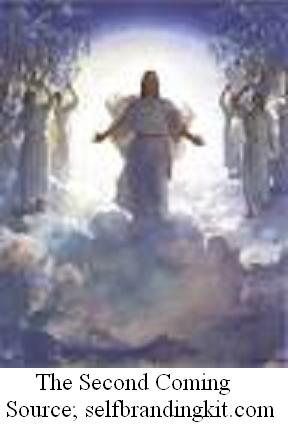 约翰的门徒离开后,耶稣对群众讲起约翰来,说:“你们到旷野去,是要看什么?被风吹动的芦苇吗? 你们出去到底要看什么?身穿华丽衣裳的人吗?那些穿著华丽衣裳的人,是在王宫里的。 那么,你们出去要看什么?先知吗?是的,我告诉你们,你们看见的人不仅仅是一位先知。《经》上所记:‘看哪,我要差遣我的使者在你前面为你预备道路’,这里所指的就是约翰。我实在告诉你们,妇人所生的,没有一个比施洗的约翰更大;然而上帝的王国里最小的比他还大。从施洗的约翰的时候直到现在,上帝的王国不断遭受猛烈的攻击,强暴的人企图把它夺去。所有先知和律法预言的都直到约翰时代为止。如果你们肯接受,约翰就是那要来的以利亚。有耳的,就应当听。(马太11:7-15) 耶稣在这里一方面说,“妇人所生的,没有一个比施洗的约翰更大”,却另一方面说,“上帝的王国里最小的比他还大”,从而告诉我们,那些将住在他要建的上帝王国的人,不是一个女人所生的人而是像耶稣一样在父亲那边的人,就是属灵的人。 耶稣也警告说,“从施洗的约翰的时候直到现在,上帝的王国不断遭受猛烈的攻击,强暴的人企图把它夺去。”这个警告似乎不仅反映了与由于在罗马军围攻前逃离城外而指责他们叛徒的犹太人激进分子的对抗,而且反映了从耶路撒冷教会创立当初就显现出来的希腊习俗信徒和希伯来习俗信徒之间的内讧。 ○无情说法 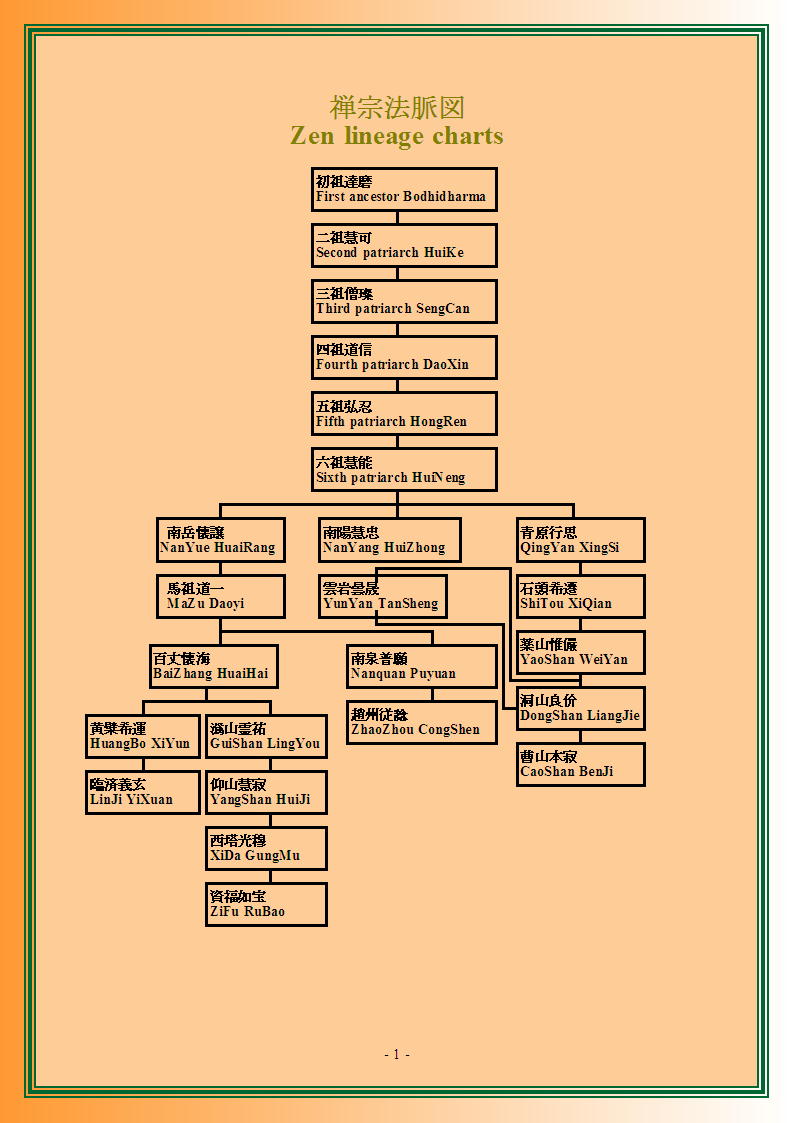 洞山良价禅师(807-869)师事五洩山(浙江省)礼默禅师(747-818)剃发,到了21岁时具戒,就开始行脚全国。首谒南泉禅师(748-835),然后参沩山禅师(771-853)。 洞山会见沩山就问,“听说南阳慧忠国师(675-775)做无情说法,我想知道无情说法到底是什么。” 沩山回答说,“在这里也有,不过很难遇到做无情说法的对象。” 洞山好像不了解沩山的意思就问,“那么请给我听您的无情说法。” 沩山则回答,“不能用父母所生的口来做无情说法呀。” 洞山还不懂他的意思而再问,“除了您以外,还有别人会做无情说法吗?” 沩山似乎想这个年轻学僧仍有可取之处,告诉他说,“从这里走过一会儿,有石室相连的地方。在那里你可以见面云岩禅师(742-841)。” 洞山马上访问云岩就问,“会听无情说法的是怎么样的人?” 云岩就回答,“会听无情说法的是无情的人。” 洞山再问,“那么,您是否听无情说法?” 云岩回答,“如果我听无情说法,那么你不会听呀。” 洞山叮问说,“就是,我不会听您的无情说法是不是?” 云岩反问说,“我尽管讲无情说法,你的耳朵却不会听,那么,你怎样听无情说法呀?” 洞山则做以下偈颂,“也大奇,也大奇,无情解说不思议,若将耳听声不现,眼处闻声方可知。”他把这个偈颂呈献并告辞云岩。 云岩问,“到哪儿去?” 洞山回答,“没有决定到哪儿去。”又问云岩,“百年后,如果有人问您的面目(是否继承云岩禅法真谛),怎么样对待?” 云岩回答,“你对他说‘这个’就够了。” 洞山不懂他的意思,沉默良久。 云岩说,“承当这个是一大事,仔细审度。” ○恁么道 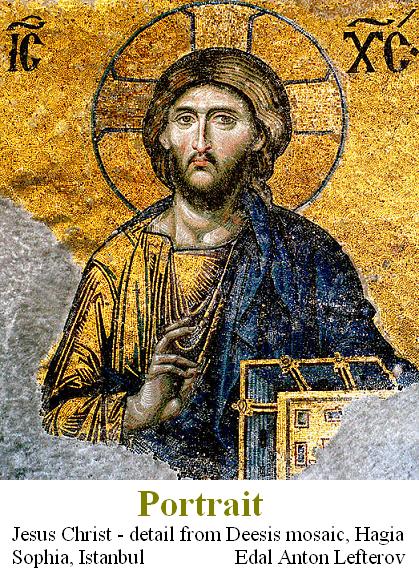 洞山仍然迷惑。经过水边,在水中看到自己的影子时,恍然大悟。因此做以下偈颂。“不可向他问道,道就与我遥远,我现在独自往,处处得逢他(道),他就是我,我不是他,应该这样体会,如来就现成。” 经过一段年月后,有一天洞山在云岩的遗影前烧香时,有一位学僧向他问,“先师所说的‘这个’是用最浅近例子来示法的劝告,就好像这遗影是不是?” 洞山回答,“就是。” 学僧再问,“意旨如何。” 洞山说,“当时我几乎误解先师的话。” 学僧疑问说,“先师本身是否了解?” 洞山回答说,“如果不知道,就试图解释恁么道。但是,如果知道,只管做恁么道。”<待续> 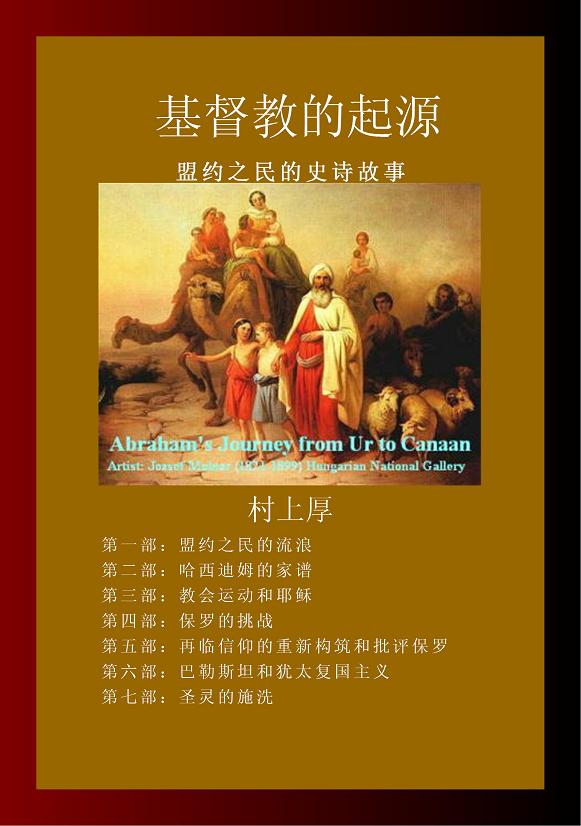 ○“圣灵的施洗”是什么概念? 根据约翰福音的辩证法, 【正题】“一个人可以通过接受人子的见证而被施洗以圣灵从而获得永恒的生命。”(约翰5:24) 【反题】不过,“地上的人,不会接受从天上来的人的见证。”(约翰 3:32) 那么,一个人怎么能获得永恒的生命呢? 【合题】“如果你要接受以圣灵受洗,就回到太初与神同在的话语中(约翰1:1),从而见证神是真实的(约翰3:33),那就够了。” 法眼禅师通过回答,“你就是慧超”而把在慧超里面活生生的面目摆在他的眼前。 在这里购买 【参照】 ○《景徳伝灯録第十五巻摘录:The Transmission of the Lamp Chapter 15 Selections translated by Chang Chung-Yuan》 次参沩山问曰。顷闻忠国师有无情说法。良价未究其微。 After visiting Nanch'uan, Liang-chieh went to see Master Kuei-shan沩山 and said to him: "I have just heard that there is a way of teaching through passionlessness, that is being practiced by the National Teacher Nan-yang Hui-chung 南阳慧忠, but I have not yet understood its real meaning." 沩山曰。我遮里亦有。只是难得其人。 Kuei-shan replied: "I teach it here too. However, I have not yet found the man to whom I can teach it." 曰便请师道。 Liang-chieh then urged Kuei-shan to tell him about it. 沩山曰。父母所生口终不敢道。 Kuei-shan remarked: "My mouth which was given me by my parents never dares to utter a word." 曰还有与师同时慕道者否。 But Liang-chieh persisted: "Is there any one else besides you who has also devoted himself to this teaching?" 沩山曰。此去石室相连有云岩。若能拨草瞻风。必为子之所重。 Kuei-shan answered: When you leave here and come to a place where there are stone chambers connected with each other, you will find there Master Yun-yen. If you don't mind the hardship of climbing up there to visit him, he will be the man whom you will respect." 既到云岩问。无情说法什么人得闻。 When Liang-chieh came to Yun-yen, he asked him: "What kind of man is able to hear the teaching of Dharma 法through passionlessness?" 云岩曰。无情说法无情得闻。 Yun-yen replied: "It is one's own passionlessness which can hear the teaching of Dharma through passionlessness." 师曰。和尚闻否。 Liang-chieh asked: "Can you hear it?" 云岩曰。我若闻汝即不得闻吾说法也。 Master Yun-yen said: "If I can hear it, then you will not hear me teaching the Dharma." 曰若恁么即良价不闻和尚说法也。 Liang-chieh replied: "If this is so, it means that I do not hear you teaching the Dharma." 云岩曰。我说法汝尚不闻。何况无情说法也。 Master Yun-yen challenged him: "When I taught the Dharma, even you did not hear it. How can you expect to be taught by passionlessness." 师乃述偈呈云岩曰:也大奇、也大奇、无情解说不思议、若将耳听声不现、眼处闻声方可知。 Thereupon Liangchieh composed a gatha, and presented it to Yun-yen: It is strange indeed! It is strange indeed! Dharma taught by passionlessness is beyond the imagination. Listening through your ear you cannot understand; But you will be aware of it by listening with your eyes. 遂辞云岩。云岩曰。什么处去。 After presenting the gatha, Liang-chieh asked leave of Master Yun-yen, who said to him: "Where are you going?" 师曰。虽离和尚未卜所止。 "Although I am leaving you, I have no idea where my next stop will be." replied Liang-chieh. 又问云岩。和尚百年后忽有人问还貌得师真不。如何只对。 "After you have passed away how can I answer someone if he wants me to describe what you were like?" 云岩曰。但向伊道即遮个是。 "You just say to him, 'This is!'" Yun-yen replied. 师良久。 Liang-chieh kept silent for a while. 云岩曰。承当遮个事大须审细。 Yun-yen said to him again: "You must be very careful, as you are carrying this great thing." 师犹涉疑。后因过水影大悟前旨。因有一偈曰: Liang-chieh was still puzzled. Later when he was crossing the water and saw his image reflected, he suddenly understood the teaching of Yun-yen. Thus he made the following gatha: 切忌从他觅、迢迢与我疏、 我今独自往、处处得逢渠、 渠今正是我、我今不是渠、应须恁么会、方得契如如。 "You should not search it through others. If you do, the Truth will become more remote from you. But when alone I proceed through myself, Every where I go I meet him. Now, he is not other than myself; Yet, I am not he. Only if you understand this, Will you identify with Tathata." 他日因供养云岩真。有僧问曰。先师道只遮是莫便是否。 Another day, on the occasion of offering food to the portrait of Master Yun-yen, a monk asked Master Liang-chieh: "Is this (portrait) not what our late Master meant when he said that 'This is'? " 师曰是。 "Yes, it is!" Master Liang-chieh answered. 僧曰。意旨如何。 "What did 'This is' mean when Master Yun-yen said it?" 师曰。当时几错会先师语。 "I almost misunderstood him when he said it." replied the Master. 曰未审先师还知有也无。 "I wonder whether the late Master knew the Truth." continued the monk. 师曰。若不知有争解恁么道。若知有争肯恁么道。 "If he did not know it, how could he have known how to say it? If he did not know it, how could he have said it in such a way?" said Master Liangchieh. 师至唐大中末。于新丰山接诱学徒。厥后盛化豫章高安之洞山。 By the end of the period of Ta-chung大中(847-859), Master Liang-chieh received disciples and taught them at the Hsin-feng Mountain. After that his teachings were wide-spread at Tung-shan 洞山 in Kao-an 高安 of Yu-chang豫章. 因为云岩讳日营斋。有僧问。和尚于先师处得何指示。 One day, when the Master was conducting the annual memorial service for Master Yun-yen, a monk asked him: "What instruction did you receive from the late Master Yun-yen?" 师曰。虽在彼中不蒙他指示。 "Although I was there with him, he gave me no instruction." answered the Master. 僧曰。既不蒙指示。又用设斋作什么。 "Then why should you conduct the memorial service for him, if he did not instruct you?" further asked the monk. 师曰。然虽如此焉敢违背于他。 "Although this was the case, how could I disobey him?" explained the Master. 僧问。和尚初见南泉发迹。为什么与云岩设斋。 "You became known after you visited Nanch'uan. Why should you conduct the memorial service for Yun-yen?" pressed the monk. 师曰。我不重先师道德。亦不为佛法。只重不为我说破。又因设忌斋。 "It is neither for his moral character, nor for his teaching of Dharma that I respect him. What I consider to be important is that he never openly told me anything." stated the Master. 僧问。和尚为先师设斋、还肯先师也无。 Again the memorial service for Yun-yen caused a monk to raise a question: "Master! you conduct a memorial service for the late Master Yun-yen. Do you agree with what he has said to you?" 师曰。半肯半不肯。 "Half agree and half not!" replied the Master. 曰为什么不全肯。 "Why don't you entirely agree with him?" continued the monk. 师曰。若全肯即孤负先师也。 "If I entirely agreed with him, it would be ungrateful to him." replied the Master. 僧问。欲见和尚本来师如何得见。 A monk asked: "How can I see your original master?" 曰年涯相似即无阻矣。 "If two people both reach the ultimate, then there is no barrier of age between them." answered the Master. 僧再举所疑。师曰。不蹑前踪更请一问。 The monk tried asking about what still puzzled him. The Master said to him: "Do not trace the previous steps, but raise another question." 僧无对。云居代云。恁么即某甲不见和尚本来师也。 The monk made no answer. Yun-chu雲居, another disciple, replied for him: "According to what you say, I cannot see your original master." 师又曰。还有不报四恩三有者无。若不体此意。何超始终之患。直须心心不触物步步无处所。常不间断稍得相应。 The Master then continued: "Is there any one who does not show his gratitude to the 'Four Graces' and the 'Three Existences'." If he does not understand the meaning of these, how can he be free from the suffering of the beginning and ending of existence. Every thought he has in his mind should be free from attachment to things, and also every step he takes should be free from attachment to his dwelling place. When he keeps on in such a way without interruption, he will be close to the answer." ○一个世界:SEAnews的宗旨 您的意见 / 退订SEAnewsFacebookSEAnewsGoogleSEAnews eBookstoreSEAnews eBookstore(GoogleJ)SEAnews world circulation |
|
[Your Comments / Unsubscribe]/[您的意见/退订]/[ご意見/配信停止]
Please do not directly reply to the e-mail address which is used for delivering the newsletter. 请别用递送新闻的邮件地址而直接回信。 メールをお届けした送信専用アドレスには返信しないで下さい。 |